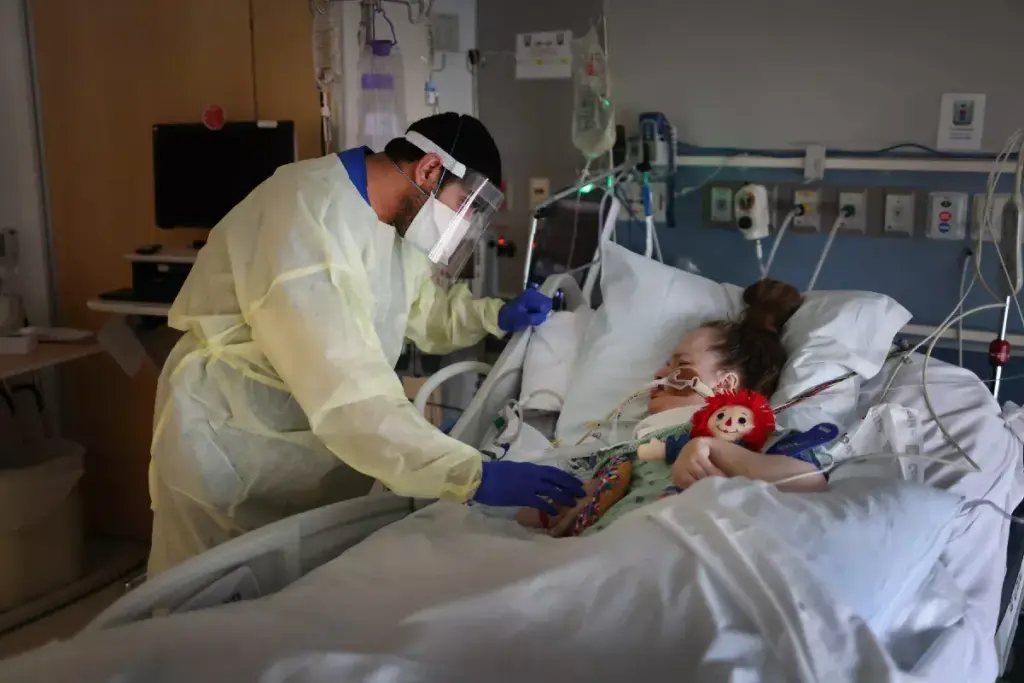How Painful is Colon Cancer Surgery? Nearly 40% of patients who have colon resection surgery say they feel a lot of pain after. This shows why we need to manage pain better.
At our place, we know patients worried about colon cancer surgery pain. Our team is here to help and guide you through recovery.
We get it, colectomy recovery pain is a big worry for many. Our team works hard to help you feel better and recover smoothly.

Key Takeaways
- Effective pain management is key for getting better after colon cancer surgery.
- Our institution offers personalized care and guidance during recovery.
- Pain after colon cancer surgery can be a big deal, but we have ways to handle it.
- Colectomy recovery pain can be managed with good pain plans.
- Our experts are committed to giving top-notch care to patients from around the world.
Understanding Colon Cancer Surgery
It’s important for patients to understand colon cancer surgery. This surgery removes the part of the colon or rectum with cancer. The goal is to remove the cancer and keep the colon working well.
There are different ways to treat colon cancer through surgery. The choice depends on the cancer’s stage, location, and the patient’s health.
Common Types of Colon Cancer Procedures
Laparoscopic and open surgery are two common types. Laparoscopic surgery uses small incisions and a camera. It causes less damage, less pain, and faster recovery. Open surgery, with a larger incision, is more invasive but may be needed for complex cases.
There’s also a difference between right and left colectomy, based on the cancer’s location. The surgery method might change depending on the colon side.
Factors Affecting Surgical Approach
The choice between laparoscopic and open surgery depends on several factors. These include the stage of the cancer, the location of the tumor, and the patient’s overall health. For example, some health conditions or previous surgeries might make laparoscopic surgery less suitable.
The surgeon’s skill and the treatment center’s techniques also matter. Effective surgical pain management techniques are key to a good recovery.
What to Expect Before Surgery
Getting ready for colon cancer surgery is important. Knowing what to expect before can make a big difference. It helps avoid problems and makes recovery easier.
Preoperative Preparation
Preparation before surgery includes several steps. These steps help your team make sure you’re ready. It includes:
- Dietary Changes: You might need to eat differently or not eat at all before surgery.
- Medication Management: Some medicines might need to be stopped or changed before surgery.
- Preoperative Testing: Tests like blood work and imaging will check your health.
| Preoperative Preparation Steps | Purpose | Timeline |
| Dietary Changes | Reduce risk of complications during surgery | 1-3 days before surgery |
| Medication Adjustment | Prevent bleeding or other complications | As advised by your doctor |
| Preoperative Testing | Assess overall health and identify possible risks | 1-2 weeks before surgery |
Mental Preparation for Pain Management
Mental prep is just as key as physical prep. Using relaxation exercises, meditation, and cognitive behavioral therapy can help with anxiety and pain.
Talking to your healthcare team about pain management can also help. Knowing your options and having a plan can lower anxiety and improve results.
By working on both physical and mental prep, you can handle the challenges of colon cancer surgery better. This improves your overall experience.
Anesthesia During Colon Cancer Surgery
Anesthesia is key in colon cancer surgery, making sure patients don’t feel pain. We know surgery can be scary. Good anesthesia helps make it more comfortable for patients.
Types of Anesthesia Used
There are two main types of anesthesia: general and regional. General anesthesia makes you completely asleep, used for big surgeries. Regional anesthesia numbs a certain area, used alone or with general anesthesia for pain after surgery.
Choosing the right anesthesia depends on the surgery, your health, and the doctor’s choice. We team up with anesthesiologists to pick the best plan for you.
How Anesthesia Prevents Pain During Surgery
Anesthesia stops pain signals from reaching your brain. During surgery, it keeps the surgical area pain-free. Our team uses special medicines to do this.
We use top-notch monitoring tools to adjust the anesthesia as needed. This keeps you comfortable during the surgery. It also lowers the chance of problems after surgery and helps you recover better.
Immediate Post-Operative Pain Experience
It’s important to know about pain right after colon cancer surgery for better pain control. Patients often worry about how much pain they’ll feel during recovery.
Waking Up After Surgery
When patients wake up after surgery, they’re in a recovery room. Medical staff watch them closely. As anesthesia fades, patients might feel confused or uncomfortable. Doctors start treating pain right away with medicine.
Initial Pain Assessment is key in the recovery room. Doctors use pain scales to figure out the best way to ease pain.
First 24-48 Hours Pain Levels
The first 24 to 48 hours are very important for managing pain. Pain levels can differ, but most patients feel some discomfort. Doctors use various methods to keep pain under control.
| Time Frame | Typical Pain Level | Pain Management Strategies |
| 0-24 hours | Moderate to Severe | IV Pain Medication, Continuous Monitoring |
| 24-48 hours | Mild to Moderate | Oral Pain Medication, Gradual Mobilization |
The table shows how pain and treatment change in the first 48 hours. It’s important for patients to tell doctors about their pain. This helps adjust treatment plans.
Knowing what to expect with pain after colon cancer surgery helps patients prepare for recovery. Good pain management is a team effort between patients and doctors.
Colon Cancer Surgery Pain: What Patients Actually Experience
Patients who have had colon cancer surgery share their pain experiences. By looking at their stories and surveys, we learn about the pain they face. We also see how they manage it.
Patient Testimonials and Surveys
Patient stories give us a personal look at post-surgery pain. Many say the pain is high at first but gets better with time. For example, one patient said,
“The first few days were the hardest, but the pain medication really helped me manage the discomfort.”
Surveys also give us numbers on pain levels. They use pain scales to measure pain. One survey found that pain was an average of 6.2 out of 10 right after surgery. It dropped to 2.8 within a week.
Pain Scale Assessments
Pain scales are key for tracking and managing pain. They help doctors understand how much pain a patient feels. Patients rate their pain from 0 (no pain) to 10 (the worst).
Using pain scales helps tailor pain care. For instance, a patient with a pain score of 8 might get stronger meds. Regular checks let doctors adjust treatments to keep pain under control.
By mixing patient stories with pain scale data, we get a full picture of surgery pain. This helps improve care and support patients during recovery.
Comparing Pain Levels: Open vs. Laparoscopic Colon Surgery
Choosing between open and laparoscopic colon surgery is key. It impacts both the surgery’s success and the pain after it. We’ll look at how these two methods differ in pain levels.
Open Colon Surgery Pain Profile
Open colon surgery needs a big cut, leading to more pain after. Those who have open surgery often feel more pain right after. The bigger cut means more tissue to heal, making recovery more uncomfortable.
Research shows open surgery pain is high in the first days. But, this pain usually goes down as the wound heals.
Laparoscopic and Minimally Invasive Approaches
Laparoscopic colon surgery uses small cuts and a camera. This method causes less tissue damage and less pain after. People who have laparoscopic surgery usually feel less pain and need less pain medicine.
Laparoscopic surgery also means shorter hospital stays and faster recovery. But, it’s not right for everyone. It depends on the cancer’s stage and the patient’s health.
Pain Management Strategies in the Hospital
In the hospital, we use many ways to manage pain after colon cancer surgery. It’s key for the patient’s recovery and comfort. We mix medication and non-pharmaceutical methods to give our patients the best care.
Medication-Based Pain Control
Medicine is a big part of managing pain after surgery. We use opioids, NSAIDs, and acetaminophen to control pain well. The right medicine depends on the patient’s health, surgery type, and how they handle pain.
A study in the Journal of Clinical Oncology showed a mix of pain management works. It used non-opioid drugs to cut down opioid use and improve pain control in colon cancer surgery patients.
| Medication Type | Usage | Benefits |
| Opioids | Strong pain relief | Effective for severe pain |
| NSAIDs | Reducing inflammation | Less risk of dependency |
| Acetaminophen | Mild to moderate pain | Fewer side effects |
Non-Pharmaceutical Pain Management
We also use non-medical ways to manage pain. These include breathing exercises, physical therapy, and relaxation techniques. These methods help reduce pain and improve the patient’s overall health.
“The use of non-pharmacological interventions, such as cognitive-behavioral therapy and relaxation techniques, can significantly enhance pain management in cancer patients.” –
American Pain Society
Breathing exercises can lower stress and help relax, easing pain. Physical therapy keeps patients moving and reduces stiffness.
- Breathing exercises to reduce stress
- Physical therapy to maintain mobility
- Relaxation techniques for overall well-being
By combining these methods, we offer a full pain management plan. It meets the unique needs of each patient after colon cancer surgery.
Managing Pain During the First Week of Recovery
Managing pain well in the first week after colon cancer surgery is key for a smooth recovery. During this time, patients often feel different levels of pain as their body heals.
Typical Pain Progression Timeline
The timeline for pain can differ from person to person. But, most follow a common pattern. Right after surgery, pain is usually controlled with medicine.
- Day 1-2: High levels of pain, typically managed with strong pain medication.
- Day 3-4: Pain levels gradually decrease as the body starts to heal.
- Day 5-7: Most patients experience a significant reduction in pain, with some discomfort remaining.
It’s vital to stick to the pain management plan given by healthcare professionals for a comfortable recovery.
| Day | Typical Pain Level | Recommended Pain Management |
| 1-2 | High | Strong pain medication |
| 3-4 | Moderate | Gradual reduction in pain medication |
| 5-7 | Mild to Moderate | Over-the-counter pain relievers |
Warning Signs of Abnormal Pain
While some pain is normal, there are signs of abnormal pain that need medical help.
- Severe pain that doesn’t respond to medication.
- Pain accompanied by fever, redness, or swelling around the incision site.
- Increasing pain over time instead of decreasing.
If you notice any of these signs, it’s important to reach out to your healthcare provider right away.
Special Considerations: Stoma and Colostomy Pain
Patients with a stoma or colostomy after colon cancer surgery face special pain challenges. The creation of a stoma or colostomy helps the bowel heal. But, it also brings new pain control needs.
Unique Pain Challenges with Ostomies
People with ostomies might feel pain at the stoma site. This can include irritation, inflammation, or problems like stenosis or prolapse. Effective ostomy pain management is key to a better life quality.
Some common issues include:
- Peristomal skin irritation
- Stoma retraction or prolapse
- Infection or abscess formation
- Pouching system discomfort
Dealing with these problems often needs a team effort. This includes wound care specialists and pain management experts.
Adapting to Life with a Stoma
Living with a stoma or colostomy is more than just pain management. It’s about adjusting to a new lifestyle. Patients need help with stoma care, managing their pouching system, and dealing with emotional changes.
| Aspect of Care | Considerations | Support Measures |
| Stoma Care | Cleaning, inspecting for complications | Wound care specialists, patient education |
| Pouching System | Choosing the right system, managing output | Product trials, ostomy support groups |
| Emotional Adjustment | Coping with body image changes, anxiety | Counseling, peer support |
By tackling these areas fully, patients can better adjust to their new life. They can also manage their pain more effectively.
We know managing stoma or colostomy pain is a big part of recovery after colon cancer surgery. By understanding the unique challenges and using the right strategies, patients can improve their overall health.
Long-Term Pain After Colon Cancer Surgery
Some patients face long-term pain after colon cancer surgery. It’s important to understand why this happens. While many recover well, others struggle with ongoing pain.
Chronic Pain Syndromes
Chronic pain can occur after surgery due to nerve damage, adhesions, or scar tissue. It’s essential for patients to work closely with their healthcare team to find the cause of their pain. This helps in creating a proper treatment plan.
Some may feel neuropathic pain, which is sharp or burning. This pain is hard to manage and might need a mix of treatments.
When Pain Indicates a Problem
Some pain after surgery is normal. But, if pain doesn’t go away or gets worse, it could mean a problem. Patients should be aware of the warning signs, like pain that gets more intense or changes in how it feels.
If you’re dealing with long-term pain after surgery, talk to your doctor. They can figure out if your pain is from a complication or a chronic pain syndrome. This is important for managing your pain.
- Monitor your pain levels and report any changes to your healthcare provider.
- Keep a pain diary to track your symptoms and identify possible triggers.
- Discuss your treatment options with your healthcare team, including medication, physical therapy, and other interventions.
Scar Pain and Physical Healing
Managing scar pain is key for those who have had colon cancer surgery. It’s important to know the difference between normal and abnormal pain. This helps ensure you heal properly.
Normal vs. Abnormal Incision Discomfort
Some scar pain is normal after surgery. But, it’s important to tell normal pain from signs of trouble. Normal pain:
- Gets better over time
- Can be managed with medicine
- Feels like a dull ache or sharp pains that go away
But, abnormal pain might show up as:
- Pain that gets worse
- Pain that medicine can’t fix
- Signs of infection like redness or fever
If you see these signs, see your doctor right away.
Scar Management Techniques
Good scar care can lessen pain and help healing. Here are some ways to do it:
- Massage Therapy: Gentle massage can help move tissues and reduce pain.
- Silicone Gel or Sheeting: Using silicone can make scars less noticeable and softer.
- Topical Treatments: Some creams or ointments can help with pain and make scars look better.
“Taking care of your scar can really help with recovery,” says a healthcare expert. “It’s about being proactive and working with your healthcare team.”
Understanding scar pain and using the right care can help you recover better after colon cancer surgery. It’s about taking charge of your healing and aiming for a smoother recovery.
Returning to Normal Activities: Pain Milestones
The journey to get back to normal after colon cancer surgery is marked by pain milestones and activity limits. It’s key to know when it’s okay to start doing daily things again. This balance helps the body heal while also wanting to get back to life as usual.
Activity Restrictions Based on Pain
After surgery, patients are told to slow down to avoid more pain or healing issues. The pain level is a big clue about whether an activity is too much. Usually, if an activity hurts a lot, it’s best to stop or change it.
At first, patients should avoid heavy lifting, bending, or hard exercises. The exact limits depend on the surgery type and the patient’s health.
“I was surprised at how much I had to adjust my daily routine after surgery. Simple tasks like grocery shopping were challenging due to pain and fatigue.” – A colon cancer survivor.
Gradual Return to Daily Functions
It’s wise to slowly get back to daily tasks to let the body heal and avoid problems. It’s important to listen to your body and not ignore pain, as ignoring it can cause setbacks.
| Activity | Typical Recovery Time | Pain Level Guideline |
| Light walking | 1-2 weeks | Mild pain manageable with medication |
| Driving | 2-4 weeks | No pain while sitting or operating the vehicle |
| Heavy lifting | 4-6 weeks | No significant pain during or after activity |
Getting back to normal after colon cancer surgery needs patience and careful pain checks. By knowing and following these pain milestones, patients can have a smoother recovery and lower the chance of problems.
Psychological Aspects of Surgical Pain
Understanding the psychological aspects of surgical pain is key for full care. Colon cancer surgery is a big event that deeply affects patients’ minds.
Anxiety and Pain Perception
Anxiety and pain are closely tied. High anxiety can make pain feel worse, creating a tough cycle for patients. Studies show that those with more anxiety before surgery feel more pain after.
It’s important to tackle anxiety to manage pain. Using relaxation exercises and mindfulness can lower anxiety. This might also reduce how much pain is felt.
Coping Strategies for Pain-Related Distress
Good coping strategies are essential for dealing with pain distress. Cognitive-behavioral therapy (CBT) helps change negative thoughts and build coping skills. Support groups also offer a sense of community and understanding, making patients feel less alone.
Healthcare providers should also offer personalized care plans that meet patients’ psychological needs. This approach can enhance recovery and help patients face colon cancer surgery better.
Potential Complications That Increase Pain
After colon cancer surgery, patients may face complications that raise their pain levels. Surgery is key in treating colon cancer. Knowing these complications helps manage pain better.
Infection and Inflammatory Responses
Infection is a big complication after colon cancer surgery, causing more pain. When the body finds an infection, it starts an inflammatory response. This can lead to swelling, redness, and pain at the surgical site.
We must watch for signs of infection like fever, a fast heart rate, and odd wound drainage. This helps us act quickly.
Table: Signs of Infection to Monitor
| Signs | Description |
| Fever | Elevated body temperature above 100.4 °F (38 °C) |
| Increased Heart Rate | Tachycardia, or a heart rate exceeding 100 beats per minute |
| Abnormal Wound Drainage | Unusual discharge or pus from the surgical wound |
Adhesions and Bowel Obstructions
Adhesions, or bands of fibrous tissue, can form after surgery. These can cause bowel obstructions, leading to severe pain, nausea, and vomiting. We must be ready to handle these complications to reduce pain.
Recognizing the signs of bowel obstruction early is key. Symptoms include severe abdominal pain, constipation, and vomiting. Quick medical help is needed to avoid more problems.
It’s important to understand these complications and their effect on pain. By spotting signs early and acting fast, we can manage these issues well. This improves patient outcomes.
Conclusion: The Pain Journey of Colon Cancer Surgery
Understanding the pain from colon cancer surgery is key for patients. We’ve looked at different parts of pain related to this surgery. This includes the types of procedures and how to manage pain after surgery.
Managing pain well is essential for a good recovery. We’ve seen that using both medicines and non-medical methods helps a lot. Knowing about the pain journey helps patients get ready for recovery.
In conclusion, managing pain from colon cancer surgery is complex. It needs a focus on the patient. Personalized care and support are vital for a smooth recovery. This way, patients can have a better pain management journey and overall recovery.
FAQ
What are the most common types of colon cancer surgery?
The most common types are laparoscopic and open surgeries. Laparoscopic surgery uses smaller incisions. Open surgery needs a bigger cut.
How is the type of anesthesia determined for colon cancer surgery?
The anesthesiologist decides based on your health and the surgery’s complexity. General and regional anesthesia are often used.
What can I expect in terms of pain during the first 24-48 hours after colon cancer surgery?
You’ll likely feel moderate to severe pain in the first 24-48 hours. This pain is managed with medication. The pain usually gets better as you recover.
How does laparoscopic colon surgery compare to open colon surgery in terms of pain?
Laparoscopic surgery usually means less pain and quicker recovery. This is because it has smaller cuts and less tissue damage.
What pain management strategies are used in the hospital after colon cancer surgery?
The hospital uses medication and non-medical methods. This includes opioids, non-opioid analgesics, breathing exercises, physical therapy, and relaxation techniques.
What are the unique pain challenges associated with stoma and colostomy surgery?
Stoma and colostomy surgery can cause specific pain issues. Managing this pain involves proper wound care, medication, and emotional support.
Can colon cancer surgery result in long-term pain?
Yes, some people experience chronic pain after surgery. It’s important to keep track of your pain and talk to your doctor if it persists.
How can I manage scar pain after colon cancer surgery?
Scar pain can be managed with techniques like massage and silicone gel. These methods help with healing and reduce scar tissue.
When can I return to normal activities after colon cancer surgery?
Returning to normal activities depends on your recovery and pain levels. Always follow your doctor’s advice on when to start doing more things.
How can I cope with pain-related distress after colon cancer surgery?
Use relaxation techniques, mindfulness, and cognitive-behavioral therapy to manage pain and anxiety. These strategies can help you cope.
What are the potentially complications that can increase pain after colon cancer surgery?
Complications like infection, inflammatory responses, adhesions, and bowel obstructions can increase pain. It’s important to catch these early to manage them effectively.
How is pain assessed and managed after colon cancer surgery?
Pain is assessed using pain scales. It’s managed with a combination of medication, non-pharmaceutical strategies, and lifestyle changes










